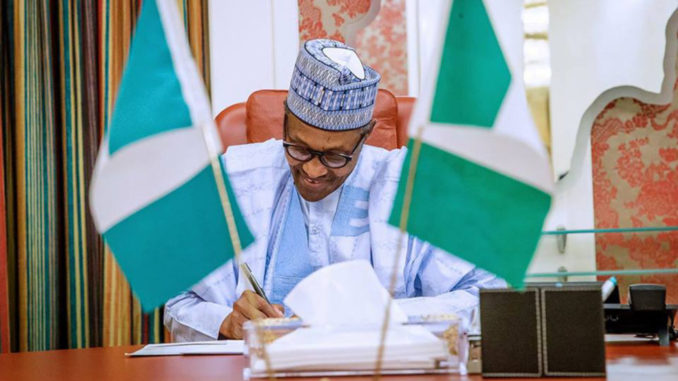
I do not believe that a society can sustain its democratic claims if it allows its public office holders to run two lives: an open public life and another jealously sheathed private one. At work, he or she is immersed in files, open for scrutiny, even if their over embroidered agbada or sky-touching gele wouldn’t permit a full and close watch. But at home, in their closet, they are liberated from any restraint. They are at liberty to trash the discipline of service and accountability.
That is equal to performing Dr. Jekyll and Mr. Hyde, the eponymous protagonists of the book by Robert Louis Stevenson. It’s one person leading two different lives. Jekyll takes a drug that breaks him into two separate personalities, one good and the other evil. Dr. Jekyll is the amiable character, while Mr. Hyde exhibits the pernicious traits. Yet it’s one person at work.
Nigeria’s President Muhammadu Buhari has raised this question of the replay of a two-in-one personality in the country’s politics with his controversial trips abroad since his ascension in 2015. He doesn’t believe that his public life must merge with that of his life away from the premises of the office. He sees two figures: Buhari the president (public office holder) and Buhari the unknown man in the crowd (the private character). They don’t meet. They are separate beings. They go different ways.
So, at a point, Buhari the president can afford to show up before those who gave him the authority to be the president. But Buhari the other character stripped of the sash of office can, on his own terms, decide to outwit the people by going into the shadows, pleading a right to personal privacy. In that shade, he can afford to travel out of the country for hundreds of days on medical grounds without disclosing his ailment. Of course, he wouldn’t, because of the bifurcation theory of Jekyll and Hyde.
There’s an elected public office holder who can appear and disappear at will. Why not? He’s split, driven capriciously into a flight at a point by who he is privately and on another occasion jolted back home by a realization that the closet isn’t where he should be for that long.
When the president left Nigeria on April 25 on the UK trip that brought him back on Sunday evening after ten days, the debate cropped up again. His handlers said it was a private visit. Obviously, it was to avoid the reenactment of the uproar that followed previous journeys that saw the postponement of the return of Mr. President a couple of times. But Nigerians have asked questions: Why a private visit? Can there be anything private about a public person? Can a public figure announce to the public he’s using public funds for private ends? Is there more to the trip? Can a public office holder still have a private life, necessitating a blank on him for some time? Can you have your cake and eat it too? Can you sometimes be in the limelight and then on your own switch off the bulbs?
Most Nigerians say ‘no’. If you are elected to be a public person, via politics especially, you must ‘lose’ your privacy, you must forsake yourself, as it were. You become enlarged and conspicuous by the klieg lights that trail you and your family. The ‘all-seeing’ watch of George Orwell’s Big Brother in the novel Nineteen Eighty-Four is a child’s play. Big Brother sought to deal with non-conformists in a restricted society. But the searchlight of Nigerians on their representatives is to get them to work and account for the hard-earned money we put in their custody.
Split-personality leaders who hover between two worlds, who fear to collapse the two into one single public office, will always fail to be on the same page with their people. But that’s an aberration in politics. You can’t be a successful politician or leader or statesman if you don’t give up yourself or privacy in the interest of your people. None of history’s great men or of contemporary times carried their private lives into their public lives. Once you craved for public office, you opened up the personal arm of your life. It must not be allowed to come between you and the people you report to, namely the citizens.
It’s the reason we need to know what you are worth as you step into public office. Isn’t that your private affair? But we abrogate that right as you submit yourself to public regime. That is the reason in the United States, the president is made to offer himself for yearly physical test, which is made public. Why? Because although his health is a private affair, it is no longer deemed so since his health is of ‘’such key importance to the nation’’. We must disagree with our compatriots who never cease to sing the jaded song that a leader’s health issues are his private affair. They may or may not make them public, according to their spokesmen. If those who seek public office won’t reveal their medical condition, it’s an admission they are not fit for office in a democratic setting. They are most likely to have some other skeletons in the proverbial cupboard.
We must add another: we ought to know what you weigh when you assume office. A sacrificial leader must lose weight on leaving office. But not in the sense President Buhari put it when he spoke of the Police boss’’loss of weight’ as evidence of hard work to tame insecurity in the land. Our public office holder must also leave office financially poorer. If he fails these tests, he has robbed the state, and must be made to face the music.
END

Be the first to comment